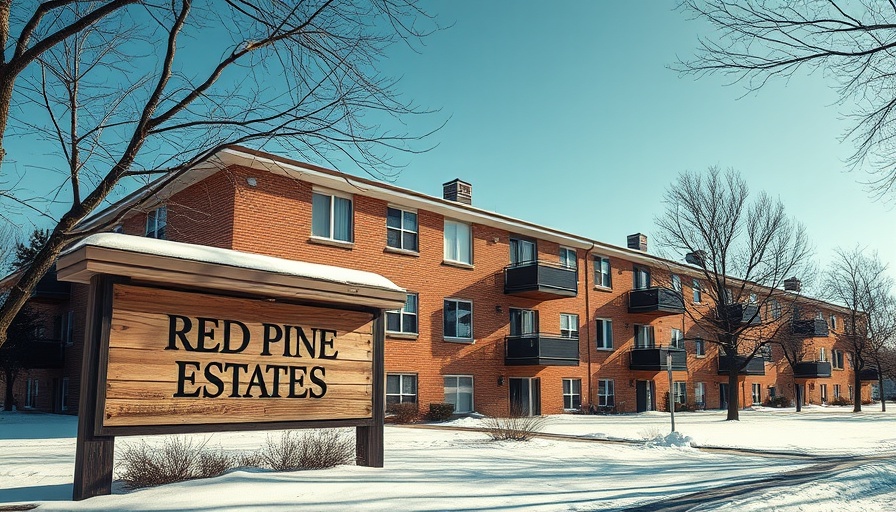
A Growing Demand for Oversight in Rental Housing
Recent discussions among Minnesota lawmakers reveal a significant concern about the oversight of rental housing, spurred by an MPR News investigation into local inspection processes. In areas across Greater Minnesota, many low-income renters find themselves at the mercy of landlords who may not prioritize necessary repairs, leaving tenants vulnerable and exposed to unsafe living conditions.
The Call for State Intervention
Sen. Lindsey Port, DFL-Burnsville, is pushing for statewide oversight of rental property licensing, arguing that current local inspection processes are inadequate, especially in smaller municipalities that lack the resources to manage housing inspections effectively. "There should be some sort of statewide oversight of licensing of rental properties," she stated, emphasizing the need for better enforcement mechanisms to protect renters.
Understanding the Housing Shortage
According to the U.S. Commission on Civil Rights, Minnesota is currently facing a dire shortage of affordable housing, needing over 100,000 units to meet demand. This shortage complicates city leaders' ability to enforce strict standards, often leading to leniency for landlords whose properties fail inspections. This situation raises the question of how best to balance accountability with the need for affordable housing options. In many cases, city leaders hesitate to take action against landlords for fear of increasing homelessness.
Impact on Tenants and Communities
Legal aid attorneys have reported that numerous low-income rental buildings are riddled with unresolved issues, from plumbing disasters to electrical hazards. As communities scramble to maintain housing stability, the pressure on city leaders mounts to support both the needs of tenants and the realities of landlords. Stories emerging from tarnished buildings like Red Pine Estates in Bemidji showcase how systemic problems can lead to tragic consequences, such as properties being condemned due to neglect.
A Call for Collaboration and Funding
While advocates for both developers and local governments warn that state regulations could impose high costs, the consensus among lawmakers is clear: a collaborative approach is essential. Sen. Port stresses that state funding would be necessary to support local entities in implementing comprehensive housing oversight. Daniel Lightfoot, a lobbyist for the League of Minnesota Cities, echoed this sentiment, noting the importance of partnerships between state and local governments to provide adequate resources for housing inspections.
What This Means for the Future of Rental Housing
The discussions among lawmakers signal a critical moment in Minnesota’s approach to housing oversight. As affordable units continue to dwindle, the pressure is on both local and state governments to devise a balanced strategy that ensures rental properties are safe and tenants are protected. The future may depend on the collective willingness of policymakers to invest in a sustainable framework that addresses whether we can afford to let these housing issues worsen.
 Add Row
Add Row  Add
Add 




Write A Comment